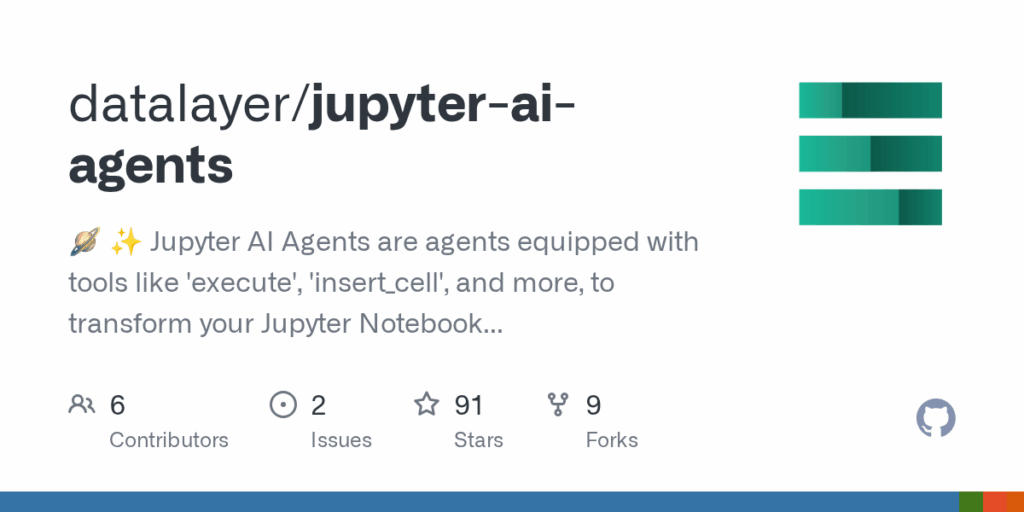jupyter ai agents
Basic Information
This repository provides a Python library, CLI tools, documentation and examples to enable AI models to interact with and modify Jupyter Notebooks. It equips agents with notebook-level tools such as adding code cells, inserting markdown, executing code and other actions so models can operate on the entire notebook rather than only on single cells. The implementation integrates with JupyterLab and its real time collaboration system using the Jupyter NbModel Client and Jupyter Kernel Client, and can also run separately from the Jupyter server via RTC. The LangChain agent framework is used to orchestrate model-to-tool interactions. The project includes installation instructions, CLI examples for prompt-driven and explain-error agents, guidance for running a server, and development and testing workflows.








